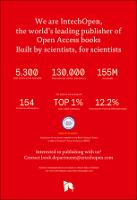Chapter Integrating Water-Food-Energy Nexus with Climate Services: Modelling and Assessment for a Case Study in Africa
Author(s)
Phoebe, Koundouri
Lydia, Papadaki
Language
EnglishAbstract
This chapter is based on the work of DAFNE project, a decision analytic framework to explore the water-energy-food (WEF) nexus in complex transboundary water resources of fast developing countries. In particular, we developed three geo- and temporally referenced scenarios under economic growth and climate change in the Zambezi river basin (ZRB), which is the fourth largest river basin in Africa and located in eight different countries.1 The future scenarios are conceptually driven by the selected combination of the shared socio-economic pathways (SSPs) and the Representative Concentration Pathway (RCP) 4.5. The time horizon of the explored case study in the ZRB shared by eight countries is the period from 2018 to 2060. The aim of this work is to develop a better understanding of the WEF nexus by providing the input to a cost-benefit optimization model aiming to optimally allocate over time and space water-energy-food. The findings show that the water, energy and food requirements are expected to double during the period of interest considering only demographic development, while economic development and international trade will put an additional burden to the supply chain in meeting those goals.
Keywords
modelling tool, integrated assessment, river basin, demographic index, water, electricity and food projections, economic indexes forecast, nexus, AfricaDOI
10.5772/intechopen.90914Publisher
InTechOpenPublisher website
https://www.intechopen.com/Publication date and place
2020Classification
Environmental science, engineering and technology


 Download
Download